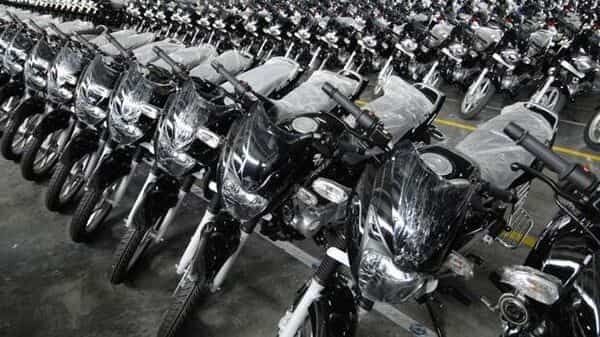
The December quarter (Q3FY22) was a difficult one for Bajaj Auto Ltd. Higher commodity costs, supply chain inefficiencies, and muted domestic motorcycle demand gave it much trouble. But a silver lining was its export business, where volumes fell by only 4% year-on-year (y-o-y) compared with domestic volume decline of 16%. Export brought about 56% of Bajaj’s revenues in Q3.
Overall, standalone revenue rose marginally by 1.3% y-o-y to ₹9,022 crore. But earnings before interest, taxes, depreciation, and amortization (Ebitda) margin contracted by 420 basis points y-o-y to 15.2%. One basis point is 0.01%.

The company is looking to maintain its export business momentum in the current quarter (Q4FY22), but expects domestic demand for motorcycles to remain dull. Varun Baxi, analyst at Prabhudas Lilladher said, “We expect rural demand for two-wheelers vertical to improve after March with the onset of the summer wedding season in North India. Exports have done well in Q3, with crude prices on the higher side. Historically, Bajaj’s exports have a high correlation with crude prices and tend to pick up pace as crude prices rise."
What is more, margins can be expected to improve in Q4. Kumar Rakesh, a senior automobile and technology analyst at BNP Paribas India, said, “Our commodity cost index indicates that raw material costs have peaked and started softening. On account of that, recent price hikes, and favourable currency realization, margins in Q4FY22 could improve sequentially."
In its Q3 earnings call, Bajaj reiterated its support for CNG vehicles. Rakesh points out, “Bajaj Auto holds about 75% market share in the CNG three-wheeler market. This segment will keep gaining prominence for the company as the auto industry shifts towards sustainable options."
On the electric vehicle (EV) front, Bajaj Auto aims to focus on building robust research and development teams and to expand its electric portfolio. The company, which sold about 2,000 electric scooters (Chetak) in Q3 plans to expand the offering to more cities in the coming quarters. Even so, Baxi observes, “As far as the EV segment is concerned, Bajaj, despite being the first company to showcase EV products among peers TVS and Hero, lags on further commitment to EVs." This reflects in the performance of the stock, which has declined by 11% in the past one year.










